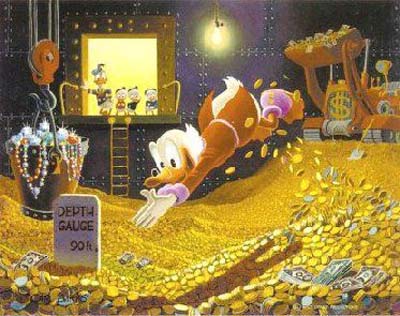by Patrica Rose
About this time in 2008 we saw the economy implode. Recruiting just about froze in place. Those who had summer offers were lucky: the employers honored them, and we urged students to accept them. Other students were in for a hard time. Even so, the class of 2009 landed on their feet. They worked hard to get jobs or get into graduate programs. Some ended up in positions that were not their first choice, but they are doing well nonetheless. Others were liberated from the specter of more traditional employment and struck out on their own, to pursue a dream. By the fall of 2009, only 11% of the class was still seeking employment.
A year ago this time things were a little better. Employer activity on campus was more palpable. The recruiters who came were serious about hiring, and not just going through the motions. During the spring semester of 2010 things really took off. Spring career fairs had an uptick in employer attendance. Some employers who didn’t recruit in the fall returned to campus, with unexpected positions to fill. On it went throughout the late spring and this summer, when we saw strong signups for fall career fairs and on-campus recruiting. We breathed a sigh of relief: things would be almost normal for the class of 2011.
But not so fast. Over the past week or two there have ominous financial reports. In particular, sales of existing homes were off 27%, and the number of first time filers for unemployment benefits was higher than expected. More commentators are talking about a double dip: having emerged from the last recession, perhaps we are going to fall back into a second. Something called the Hindenburg Omen may presage a stock market collapse. Will the class of 2011 actually have an experience closer to that of the class of 2009? If I could answer this question with any authority I would be in a different line of work.
If you are going to be graduating this spring (or before), what should you do? First, you can’t control the economic forces swirling around us. And we remain hopeful, after all, that all the employers visiting campus this fall will not just be going through the motions. But if things do slow down, focus on the things you can control. Take a leaf from the pages of the 2009 book. Think seriously about what you want to do in your first post-Penn job. If you need help figuring that out, see a counselor here at Career Services. Make sure your supporting documents (resume, cover letter drafts) are ready to go. For those of you interested in the large employers who recruit on campus, the year starts today, August 30, the first day you can submit resumes. Employer information sessions begin the day before classes start. The large career days are the second week of classes. Recruiting starts September 28. Those who get a slow start will miss out on real opportunities.
If you are applying to graduate or professional school, consult early with one of our pre-professional advisors. Attend graduate school information sessions, beginning in September. Be realistic about the schools on your list (our advisors can help with that too). Ask for recommendations in plenty of time. Make sure your applications are ready to go early.
Is all this making you nervous? It’s still August, you say, and you’re right. So sit back and enjoy this final week of summer. Be confident. You are at Penn, which will help, believe me. Take advantage of all the resources that come with being a Quaker, especially those here in Career Services. We look forward to working with you in the year ahead. Here’s to the class of 2011!








